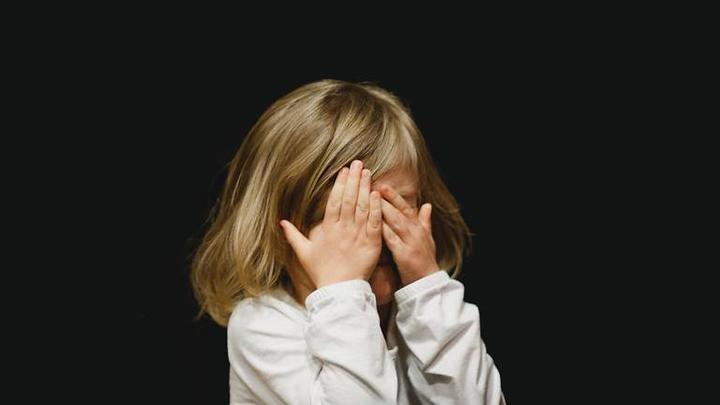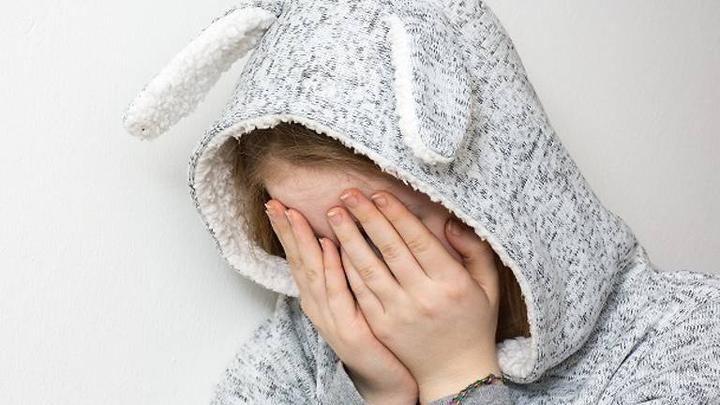分享
Commentary: Why shaming your children on social media makes things worse
2019-01-27 17:48
华人号:Seen·Life 
Matt Cox's daughterwalks 8kmto school in 2.2 degree Celsiusweather (Photo: Facebook/Matt Cox)
WEST VIRGINIA: Matt Cox knew he would be criticised when he forced his 10-year-old daughter to walk 8kmto school in 2.2 degree Celsiusweather as her punishment for being suspended from the school bus twice for bullying.
“I know a lot of you parents are not going to agree with this, but that is alright, because I’m doing what I feel is right to teach my daughter a lesson and to stop her from bullying,” Cox said in a Facebook Live video that he posted of her punishment in December 2018.
The video quickly garnered over 15 million views. Although some online comments called him a bully, most comments were from parents, educators and others who wholeheartedly supported his actions.
Cox’s video is just one of many in an emergent trend of parents who publicly shame their children on social media as punishment for various misdeeds. For instance, another father posted a video holding his son’s hand and walking with him as a “couple” through the middle school hallway as punishment for misbehaviour at school.
“I gotta give it to him this way,” the father said, as his son sulked during the ordeal.

(Photo: Unsplash/Caleb Woods)
In November last year, a New Jersey mother dressed as a clown and visited her son’s classroom to shame him for acting up in class. The boy’s principal – who calls himself “MrViral Principal” – uploaded a video of the visit on Instagram.
And last March, a father posted a video of his 10-year-old son running a mile to school in the rain because he had also been banned from the bus for bullying.“Welcome to ‘You Better Listen to Your Dad 2018,’” the man tells viewers in the video.
While the parents who made these videos – and the many viewers who praise them – may think the videos represent an effective way to discipline children, as a scholar who teaches child development and researches the psychology of social media, I believe the evidence suggests otherwise.
READ:Does caning still have a place in modern-day parenting? A commentary
FAILED PUNISHMENTS
The notion that public shaming will work goes against research about the relative effectiveness – or rather ineffectiveness – of punishment as a means of changing behaviour.
As Deidre Golash, a noted public affairs scholar and author of The Case Against Punishment,put it:
The deliberate doing of harm in the mistaken belief that it promotes some greater good is the essence of tragedy.
Not everyone agrees. In the American Criminal Law Review, Lauren Goldman, a lawyer working for the USDistrict Court in Washington, cited the prevalence of parents publicly shaming their children to bolster her call for judges to pursue similar tactics as penalties for crimes.

(Photo: Anemone123/Pixabay)
She asserts that many parents believe that “public shaming punishments generally have the ability to positively affect their children’s behaviour.”
PUBLIC SHAMING WORSENS BEHAVIOUR
The problem is it could actually backfire. “Harsh parenting,” which can include physical aggression, psychological aggression, humiliation, yelling or threatening a child, is particularly problematic.
Punitive consequences can breed feelings of resentment, revenge, rebellion and retreat. Children may simply hide behaviours instead of changing them. Research has shown that harsh discipline by parents significantly increases the risk of behavioural problems in children.
None of the parents in the social media videos described above recorded hitting their kids – a punishment that has been linked to substance abuse and psychological disorders. They were, however, all publicly humiliating their children, which is another form of harsh parenting.
Research published in the Journal of the American Academy of Psychiatry and the Law concludes that “suffering severe humiliation has been shown empirically to plunge individuals into major depressions, suicidal states and severe anxiety states”.
Parents are rightly concerned about when and how to discipline their children. Social media platforms can provide helpful opportunities to share parenting advice and learn from others.
In the process of teaching and learning, however, some parents seem to be seeking validation for their parenting techniques without much thought to how it could impact their children.
As Jon Ronson, author of the book So You’ve Been Publicly Shamed,puts it, public punitive shaming has historically been considered a cruel punishment that destroys self-respect and can ruin individuals’ lives. He added that:
Well-meaning people, in a crowd, often take punishment too far.

(Photo: Unsplash/Steven Van Loy)
Social media has exponentially increased the size of the crowd available for public shaming, and crowd dynamics are often cruel.
This form of punishment, which essentially amounts to parental cyberbullying, is particularly harmful because of its permanence. When videos are posted online, parents may lose control of the situation as the video takes on a life of its own.
IN SEARCH OF ALTERNATIVES
There are more effective and gentle approaches to disciplining children than shaming them online.
Jane Nelson, a parent educator, suggests that natural consequences, “anything that happens naturally, without adult interference,” are much more effective than punishments in shaping behaviours.
When there is not a safe or reasonable natural consequence, Nelson suggests using logical consequences instead. These consequences are seen as reasonable from the points of view of the child and the adult, are clearly related to the problem behaviour, and are respectfully and firmly reinforced without shame or pain.
Walking or jogging to school may be an excellent logical consequence to getting suspended from the school bus as long as the intent is not to inflict suffering, humiliation or psychological harm.
The video and public shaming – which may actually be modeling the punished behaviour – are not needed.
Brian Edward Kinghorn is assistant professor of Educational Foundation atMarshall University. A version of this commentary first appeared on The Conversation.

以上就是小编为您分享《Commentary: Why shaming your children on social media makes things worse》的全部内容,更多有关南非华人最新消息、新闻,请多多关注华人头条频道。您还可以下载我们的手机APP,每天个性化推荐你想要看的华人资讯!
免责申明
1、本站(网址:52hrtt.com)为用户提供信息存储空间等服务,用户保证对发布的内容享有著作权或已取得合法授权,不会侵犯任何第三方的合法权益。
2、刊载的文章由平台用户所有权归属原作者,不代表同意原文章作者的观点和立场。
3、因平台信息海量,无法杜绝所有侵权行为,如有侵权烦请联系我们(福建可比信息科技有限公司 邮箱:hrtt@52hrtt.com),以便及时删除。
举报收藏点赞
评论
(0条)

您需要登录后才能评论,点击此处进行登录。
登录后评论
最新资讯
Fanzai Lou——the Centenary Witness of Minnan People's Spirit
Refreshing Fujian2020-10-18 15:51
Chang 'an Village Scenery
Refreshing Fujian2020-10-17 15:51
These Fujian Firsts Deserve Your Attention!
Refreshing Fujian2020-10-16 15:51
the Tea Culture of Fujian
Around the World2020-10-16 15:51
the unique mythical mountain dwelling buildings in the world
Refreshing Fujian2020-10-15 15:51
热门排行
下载华人头条

关于我们
© 2022 华人头条
服务热线 : 0591-83771172
福建可比信息科技有限公司 ©版权所有
直播备案号 闽ILS备201708250005
举报热线:0591-83771172
举报邮箱:hrtt@52hrtt.com
免责声明
1、本站(网址:52hrtt.com)为用户提供信息存储空间等服务,用户保证对发布的内容享有著作权或已取得合法授权,不会侵犯任何第三方的合法权益。
2、刊载的文章由平台用户所有权归属原作者,不代表同意原文章作者的观点和立场。
3、因平台信息海量,无法杜绝所有侵权行为,如有侵权烦请联系我们(福建可比信息科技有限公司 邮箱:hrtt@52hrtt.com),以便及时删除。

 闽公网安备35010202000536号
闽公网安备35010202000536号